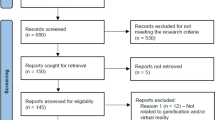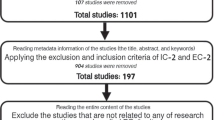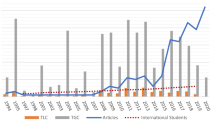Abstract
Interest in telecommunications delivery systems has increased in higher, postsecondary, and adult education institutions in recent years, in part due to demographic shifts and in part due to improved telecommunications systems. Current research on the adult learner and on instruction through media has grave flaws, and five reviews of research are needed to assist instructional developers and adopters to make wise decisions. A critical analysis is needed of existing telecourse packages. A review of research is needed on the motivation of various subgroups of adults and the recruitment and retention strategies which are effective for them. A review of research is needed on instructional strategies effective for different subgroups of adult learners. A review of research is needed on logistics and costs of alternative delivery technologies and audiences they are likely to reach. And a review of research is needed on the technical assistance and training needs of new adopters.
Similar content being viewed by others
References
Allen, W.H. Intellectual abilities and instructional media design.Audiovisual Communications Review, 23(2), Summer, 1975.
Bernstein, B. Social class, speech systems, and psychotherapy.British Journal of Sociology, 1964,15, 54–64.
Boshier, R. Educational participation and dropout: A theoretical model.Adult Education, XXII (4), 1971, 255–282.
Briggs, L.J., Campeau, P.L., Gagne, R.M., & May, M.A.Instructional Media. Pittsburgh, Pennsylvania: American Institutes for Research, 1967.
Bryan, D., & Forman, D.C. Characteristics of SUN learners. Statistical summary No. 4. Lincoln, Nebraska: The University of Mid-America, March, 1977.
Butman, J.W., & Fletcher, J.L. The role of the evaluator and developer in educational research and development. In G.W. Borich (Ed.),Evaluating educational programs and products. Englewood Cliffs, N.J.: Educational Technology, 1974.
Carnegie Commission on Higher Education.The fourth revolution: Instructional technology in higher education. New York: McGraw-Hill, 1972.
Center for Learning and Telecommunications,Resource File (Preview Edition), April, 1981. American Association for Higher Education, One Dupont Circle, Suite 780, Washington, D.C. 20036.
Chickering, A., & Associates.The modern American college. San Francisco, Jossey-Bass, 1981.
Cronbach, L.J., & Snow, R.E.Aptitudes and instructional methods: A handbook of research on interactions. New York: Irvington, 1977.
Cross, K.P.Adults as learners. San Francisco, Jossey-Bass, 1981.
Dirr, P.L., Katz, J.H., & Pedone, R.J.Higher educational utilization study phase I: Final Report. Washington, D.C.: Corporation for Public Broadcasting and National Center for Education Statistics, 1981.
Dollar, B. Federal attempts to change the schools. In Williams, M.F. (Ed.),Government in the classroom, Proceedings of the Academy of Political Science,33, (2), New York, 1978.
Dordick, H.S. et al. ITV: A user’s guide to the technology. Washington, D.C.: Corporation for Public Broadcasting, 1979. 111 16th Street, N.W., Washington, D.C. 20036.
Gage, N.L., & Berliner, D.C.Educational psychology. New York: Rand McNally, 1975.
Goldstein, A.Structured learning therapy: Toward a psychotherapy for the poor. New York: Academic Press, 1973.
Havelock, R.G., & Huberman, A.M.Solving educational problems: The theory and reality of innovation in developing countries. New York: Praeger Publishers, 1978.
Keppel, F., & Chickering, A. Mediated instruction. InThe modern American college (Ed. A. Chickering). San Francisco, Jossey-Bass, 1981.
Knowles, M. The adult learner is a "less neglected species."Training, August, 1977.
Knox, A.B. Proficiency theory of adult learning.Contemporary educational psychology, 5, pp. 378–400, 1980.
Leinhardt, G. Designing educational treatments.Review of Educational Research, 51(1), Spring, 1980.
Menges, R.J. Instructional methods. In A. Chickering (Ed.),The modern American college, San Francisco, Jossey-Bass, 1981.
Merrill, M., & Tennyson, R.Concept teaching. Englewood Cliffs, New Jersey: Educational Technology Publications, 1977.
Miller, H.L. Participation of adults in education: A force-field analysis. Boston: Center for the Study of Liberal Education for Adults at Boston University, Occasional Papers No. 14, 1967.
Munshi, K.Telecourses: Reflections ’80 Executive Seminar. Washington, D.C.: The Corporation for Public Broadcasting, 1980.
O’Bryan, K.G.Writing for instructional television. Washington, D.C.: Corporation for Public Broadcasting, 1981.
Ramist, L. College student attrition and retention.Findings, A periodical of ETS research in postsecondary education. Vol. 7, No. 2, Princeton, N.J.: Educational Testing Service, 1981.
Richardson, P.L. Community college and television station collaborations: What makes them work? In Kressel, M. (Ed.),Adult learning and public broadcasting. Washington, D.C.: American Association of Community and Junior Colleges, 1980 (a).
Richardson, P.L. Telecommunications and adult learning: What nine projects reveal.New directions for continuing education, 5, 1980 (b).
Rockart, J.F., & Scott Morton, M.S.Computers and the learning process in higher education. A report prepared for the Carnegie Commission on Higher Education. New York: McGraw-Hill, 1975.
Salomon, G.Interaction of media, cognition and learning. San Francisco: Jossey-Bass, 1979.
Schramm, W.Big media, little media. Beverly Hills, California: Sage Publications, 1977.
Tough, A. Choosing to learn. Unpublished manuscript, June, 1979. Available from Ontario Institute for Studies in Education, Toronto, Ontario.
Vallance, E. The landscape of the Great Plains Experience: An application of curricular criticism.Curriculum Inquiry, 1977.
Wilkinson, G.L.Media in instruction: Sixty years of research. Washington, D.C.: Association for Educational Communications and Technology, 1980.
Yarrington, R. (Ed.)Using mass media for learning. Washington, D.C.: American Association of Community and Junior Colleges, 1979.
Author information
Authors and Affiliations
Rights and permissions
About this article
Cite this article
Richardson, P.L. Issues in television-centered instruction for adults. Journal of Instructional Development 6, 6–13 (1983). https://doi.org/10.1007/BF02906206
Issue Date:
DOI: https://doi.org/10.1007/BF02906206




